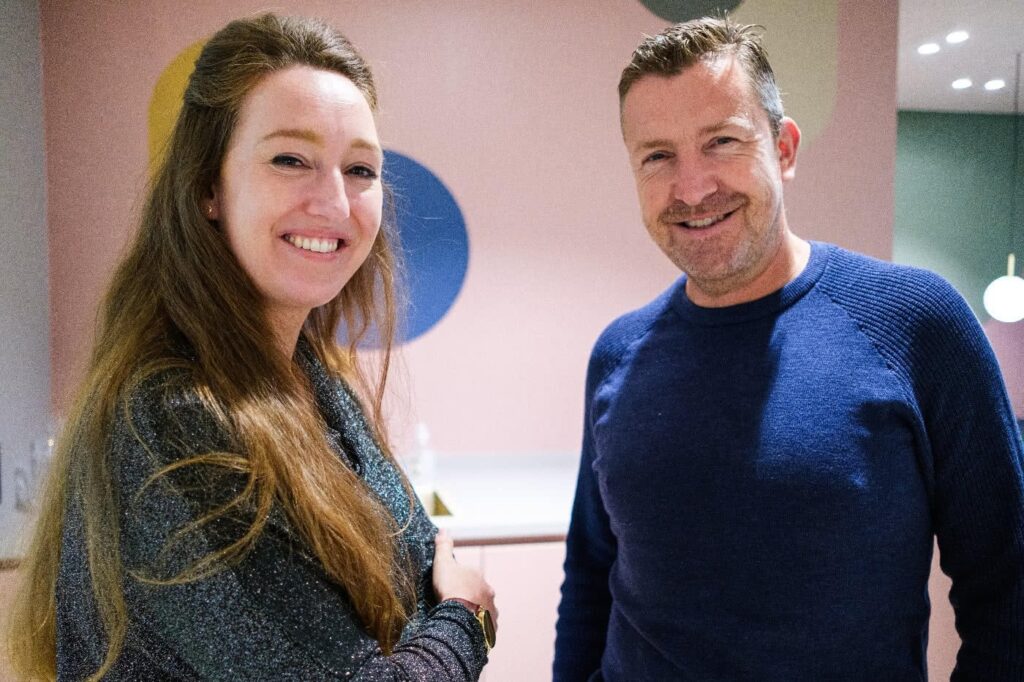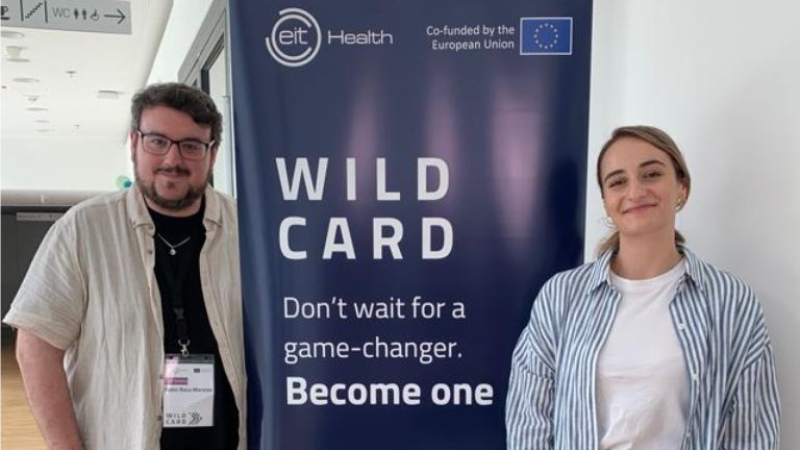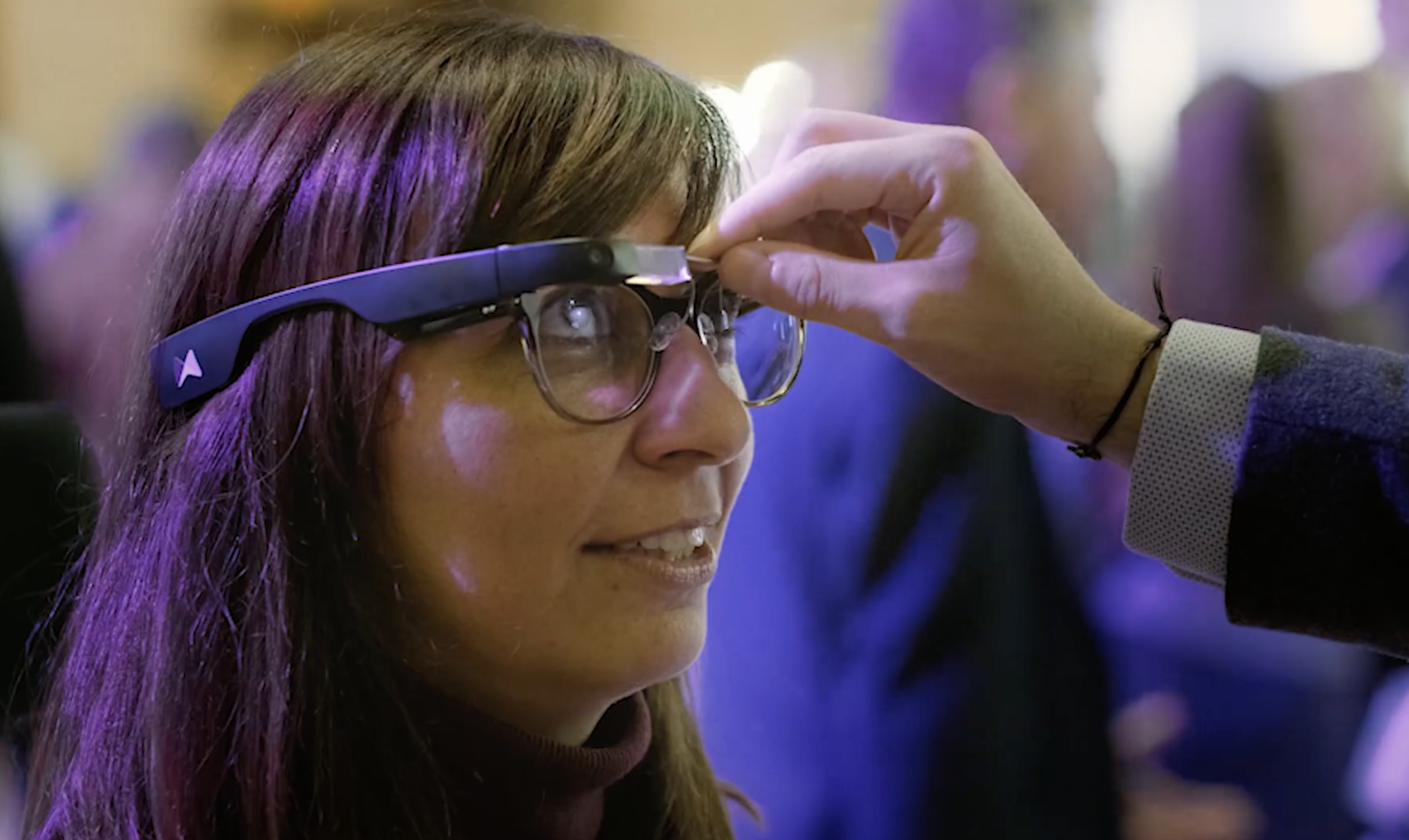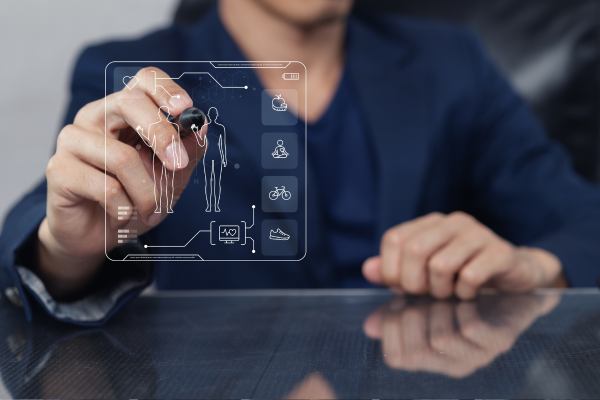10th October 2024
There is no health without mental health (World Health Organisation)
Transformative mental health start-ups supported by EIT Health | What is the future of mental health care? | Learn more about the use of technology in mental health treatments
We all have mental health. How our emotions, thoughts and feelings influence how we think, feel and act, along with our resilience, social connections, and awareness of the world are all aspects that make up our mental health. In that sense, anyone can have mental health problems.
However, mental health disorders, such as bipolar, schizophrenia, eating and personality disorders, anxiety and depression, can have a significant impact on everyday life. These conditions need to be managed and supported as any physical disease does.
According to the World Health Organisation (WHO), mental health has worsened globally since the COVID-19 pandemic, and a Eurobarometer survey [1] conducted in June 2023 revealed that almost 1 in 2 people (46% of the EU population) had experienced emotional or psychosocial problems, such as feeling depressed or anxious, in the previous 12 months[2].
This mirrors the results of a large-scale 2023[3] study of more than 150,000 adults across 29 countries of varying wealth co-led by researchers from Harvard Medical School and the University of Queensland that revealed one out of every two people[4] in the world will develop a mental health disorder in their lifetime.
Transformative mental health start-ups supported by EIT Health
While our increasing reliance on technology has been tenuously linked to rising stress, anxiety and social disconnection, could new technologies also hold the key to improving mental well-being?
EIT Health is proud to support numerous mental health start-ups developing innovative solutions which leverage emerging technology to meet unmet mental health needs. Here, we profile five such promising start-ups and explore how their technology has the potential to transform mental health care:
Medea Mind
How Medea Mind is transforming mental health care
A lack of biopsychosocial clinical data currently affects the decision-making of mental health professionals. To address this challenge, Medea Mind’s innovative Clinical Decision Support System (CDSS) standardises and automates the collection of biopsychosocial clinical data using cutting-edge science and technology. This enables professionals to make data-driven decisions without the burden of managing the data.
Medea Mind’s solution acts as a digital co-pilot for professionals and patients throughout the entire intervention process. It saves time for professionals and improves patient adherence and the effectiveness of interventions. And because it’s a modular system that is easily integrated with third-party digital infrastructures through APIs, it ensures interoperability, making Medea Mind’s technology easy to adopt.
How EIT Health has supported Medea Mind
EIT Health has supported Medea Mind throughout their first three years of growth. Medea Mind initially participated in an accelerator programme where they received guidance from international expert mentors, which was key to them identifying and developing a scalable and sustainable business model.
Additionally, thanks to EIT Health, they gained visibility by participating in roundtables, such as South Summit, and giving presentations to investors and potential strategic partners, and were always backed by the knowledge and expertise of industry professionals.
Finally, being part of the EIT Health alumni network has allowed Medea Mind to strengthen their international relations and connect with a community of entrepreneurs and innovators, from whom they continuously learn and collaborate with.
moonbird
How moonbird is transforming mental health
Despite the demand for mental health solutions, many individuals either lack access to therapy or find it difficult to implement self-care routines. moonbird addresses this unmet need by offering a science-backed, easy-to-use breathing device that helps users regulate their stress response and improve sleep. Breathing exercises are proven to reduce anxiety, calm the mind, and induce relaxation. By making these exercises more accessible and user-friendly, moonbird enables people to manage their mental well-being daily without requiring professional assistance.
How EIT Health has supported moonbird
EIT Health has played a crucial role in moonbird’s development by offering financial support for user tests and expert mentorship. The partnership has helped moonbird accelerate product development, making sure the products answer to the needs of end users, and therefore improve product-market fit. The collaborative environment also connected moonbird with key industry stakeholders and health experts, giving them the confidence and resources needed to bring their innovation to the forefront of mental health care.
XRHealth
How XRHealth is transforming mental health
XRHealth is revolutionising healthcare by addressing critical unmet needs in mental health, physical therapy, occupational therapy, and pain management through its immersive virtual reality (VR) platform. The platform provides interactive, evidence-based treatments that patients can access from the comfort of their own homes. This immersive experience enhances engagement, and improves patient motivation and outcomes, and makes therapy more effective and accessible.
By combining mental health, physical therapy, and pain management into one cohesive platform, XRHealth provides a holistic solution that is scalable, personalised, and designed to meet the diverse healthcare needs of patients today.
The solution is in high demand, and today, XRHealth have offices on four continents and clinics in three countries, which showcases the effectiveness of the platform and highlights its potential to help people across the globe.
How EIT Health has supported XRHealth
XRHealth have participated in many EIT Health programmes where they consistently achieved outstanding results and built strong, lasting connections. Collaborating with EIT Health has significantly contributed to establishing a strong and widely recognised brand. Through EIT Health’s mentorship, funding, and exposure to European healthcare markets, XRHealth have been able to refine their innovation and expand their reach, ensuring that their cutting-edge VR treatments reach those who most need them.
Myndgard
How Myndgard is transforming mental health
Myndgard, a Trinity College Dublin spinout, founded by Dr. Sean Kelley, Dr. Edel Crehan, and Pat Flynn, seeks to identify the early signs of depression and anxiety in young people, enabling swifter, more effective interventions. It uses AI and app technology to measure mental health wellness and provide real-time feedback to clients and therapists.
Myndgard is changing how help seeking patients access mental health support. Waiting to see a therapist or mental health professional is now transformed into a time of accurately assessing and better understanding and supporting patients. This promises to double the patient numbers being supported without hiring extra staff.
Before the first in person session, Myndgard produces patient assessment and support reports so that clinicians receive a detailed pre-therapy report to enhance their decision making. These personalised, detailed reports highlight patterns on daily sleep, movement, socialisation, productivity and how these are impacting on mood. While a patient waits, they receive personalised support to maintain hope, enhance understanding and harness their courage and strengths.
How EIT Health has supported Myndgard
In 2023, Myndgard was supported through an open innovation competition run by EIT Health which invited health innovators from across Europe to develop solutions to solve pressing health challenges. The 2023 challenge sought to tackle areas of children’s health and saw selected start-ups receive expert mentoring to help them build game-changing life sciences companies.
INUKA Coaching
How INUKA Coaching is transforming mental health
Many mental health challenges can be addressed with just one meaningful conversation – connecting with a trained, empathetic person can be all it takes. INUKA have taken this concept globally, because they believe everyone deserves the right help, exactly when they need it. Their digital platform offers effective, evidence-based affordable mental health support whenever and wherever it’s needed by letting anyone connect with a trained INUKA Coach – for almost any challenge a person faces (physical, mental, purpose, energy), at a fraction of the cost of traditional therapists and coaches, and with top-notch quality.
How EIT Health has supported INUKA Coaching
EIT Health supported INUKA to launch in Germany through a programme which brought together health entrepreneurs wanting to grow their business in the European market, with top incubators and accelerators with the expertise and resources to make it happen.

What is the future of mental health care?
We spoke to leaders from Medea Mind, moonbird, INUKA, XRHealth and Myndgard to get their insights into the future of mental healthcare. Here’s what they predicted:
Sara Zangri, CEO, Medea Mind
“The mental health sector is undergoing a true revolution, similar to what we have seen in other areas of healthcare. On the one hand, there is a growing demand for services from the population, while on the other hand, we face a shortage of resources in the public system and a heterogeneity of services in the private sector, often lacking adequate regulation. This leaves us with an urgent situation, where science, technology, and innovation have the potential to relieve the burden on professionals and, most importantly, reduce the suffering of patients and their families.”
“As a scientist and psychologist, I am hopeful about the advances we are seeing in this field, both in research and technology. However, it is essential to open more channels to implement these innovations. In the future, mental health care will need to be increasingly preventive if we want to avoid further overwhelming our health systems. It will also need to be personalised and precise to be truly effective. To achieve this, it will be crucial to have advanced technology that supports the clinical judgement of professionals. I hope that our work at Medea will be at the forefront of this revolution, helping to transform care and improve the lives of millions of people.”
Robin van Dalen, Co-founder & Co-CEO, INUKA Coaching
“The future of healthcare isn’t just about treating what’s wrong – it’s about keeping us well. Imagine a world where everyone has a personal coach to help navigate life’s challenges, big or small. Right now, many health issues in Europe – from depression to diabetes – stem from our daily habits and choices. These are behavioural challenges, not medical ones.”
“In the future, our first point of contact won’t be a doctor but a personal coach who helps us stay on track. Only when something goes off course will we need to see a GP. This proactive, coaching-first approach could reshape how we care for our mental and physical health – creating a healthier, happier society.”
Xavier Palomer, Chief Growth Office, XRHealth
“The future of mental health care will be defined by technology that personalises and democratises treatment. I firmly believe that technology has the potential to revolutionise mental health care. Clinical trials, real-world data, and patient feedback have all highlighted the critical role technology can play in improving mental health outcomes.”
“With advancements in virtual reality, digital therapeutics, artificial intelligence, and other cutting-edge technologies, we are progressing toward a future where mental health care is not only more accessible but also more effective. Real-time data and personalised interventions will help individuals achieve better results. We are on the verge of a new era in which immersive technologies will become integral to everyday therapeutic practices, empowering both patients and clinicians.”
Dr Edel Crehan, Co-Founder, Myndgard
“With enhanced trust and safety measures, technology will allow at home and at-your-fingertips mental health support of high quality. Technology will break down walls and silos allowing for vulnerable patients to receive support based on their needs.”
Stefanie Broes, CEO, moonbird
“The future of mental health care will be more personalised and accessible, with tools that encourage individuals to take control of their mental well-being in real-time. Technology, like moonbird, will play a critical role in integrating proven techniques into everyday life, making mental health support as intuitive and common as physical fitness.”

Learn more about the use of technology in mental health treatments
Teletherapy and digital interventions are essential components of modern mental health care and support. While mental health awareness is improving, there’s still a stigma attached which often prevents people from seeking help; teletherapy and digital interventions offer flexible and accessible solutions for patients to engages in therapy in a more private way, reducing their fear of judgment. Additionally, by allowing patients to book appointments quickly, choose from a wider range of therapists, and talk to them ‘on demand’, they make accessing mental health service more accessible and affordable.
Teletherapy uses video conferencing, phone calls, or messaging platforms to provide mental health services. This allows individuals to access therapy from the comfort of their own home. A 2021 study[5] on the efficacy between in person and video-delivered psychotherapy found that that therapy is no less effective however it’s delivered, but when Cognitive Behavioural Therapy (CBT) is used there is a marked improvement especially when anxiety, depression or post-traumatic stress disorder (PTSD) is targeted.
Digital therapeutics in the form of CBT apps and online therapeutic programmes provide structured treatments for conditions like anxiety, depression, and stress management. While they can complement traditional therapies or serve as a standalone option for individuals who prefer self-guided treatment, studies[6] have shown that they don’t show the same degree of effectiveness as traditional guided therapies.
Integration with wearable devices provides therapists with real-time data on a patient’s physical health that allows for a more holistic treatment approach, where the physical and mental health aspects of a patient are closely monitored and addressed.
Mobile apps
Headspace, Calm, Moodfit, and BetterHelp are some of the key players in a mental health app market, that Fortune Business Insights[7] predicts will grow from USD 5.72 billion in 2023 to USD 16.50 billion by 2030. With an ever-increasing number of people experiencing mental health issues, the growing popularity of these apps lies in their easy access to product offerings of tools, exercises, and programmes that help people manage, and learn coping mechanisms for everyday symptoms of stress and anxiety.
While these apps are not designed to replace traditional mental health care, their accessibility, affordability and convenience is empowering people to take control of their mental health.
- Mindfulness and meditation apps improve emotional well-being and reduce stress and anxiety through relaxation and mindfulness activities including guided meditation, sleep stories, and breathing exercises.
- Mood tracking and journaling are features of many mental health apps. By logging emotions and experiences on a daily basis in a general app or dedicated mood tracking app, users can begin to recognise their personal triggers for stress, anxiety, or depression. These self-monitoring insights allow therapists to provide personalised treatment which is more effective.
- Cognitive Behavioural Therapy (CBT) apps help users build healthier thinking habits, manage stress, and combat depression through evidence-based therapeutic exercises rooted in CBT principles.
- Stress and anxiety management apps help users manage daily stressors through guided imagery, relaxation techniques, and community support. Some also provide comprehensive mental wellness support.
- Personalised mental health support apps usually revolve around activities that boost happiness and resilience, such as interactive games and quizzes. However, there are some that offer affordable and accessible professional mental health care with a licenced therapist directly through the app.
Wearable devices and monitoring
Wearable devices that track changes in physical indicators such as heart rate, temperature, and sleep patterns can be used to monitor a person’s physical and mental health in real-time. The devices collect the biometric data which is analysed and can flag any significant changes, which may indicate signs of stress, anxiety or mood changes, enabling early intervention if necessary, and help clinicians personalise treatment plans based on objective health metrics.
- Biometric data for mental health monitoring: Wearable technologies like smartwatches and fitness trackers, track vital signs like heart rate, sleep patterns, and physical activity which are often linked to mental health.
- Stress detection and management: Some devices use sensors to detect sudden changes in heart rate or skin conductance, which are indicators of potential stress or anxiety. The data collected can alert the wearer to practice relaxation techniques, such as deep breathing or mindfulness, to manage stress in real-time.
- Sleep tracking: Poor sleep is closely related to mental health disorders like anxiety and depression, and chronic sleep disruptions often correlate with mood disorders. Devices that track sleep patterns can provide insights into sleep quality, including the duration and stages of sleep (light, deep, REM), and can help users adjust their sleep habits, potentially preventing mental health issues before they escalate.
- Remote patient monitoring: By sending data directly to healthcare providers, wearables provide a continuous flow of information that helps clinicians monitor patients between visits and adjust treatments based on real-time data. This is particularly beneficial for patients with severe mental health conditions, who require frequent monitoring to detect early signs of relapse or mood instability.
- Enhanced feedback for therapy: Wearables can be integrated with mental health apps or telemedicine platforms to provide more robust feedback during therapy sessions. For instance, therapists may use the data from wearables to better understand a patient’s physical responses to stress or anxiety triggers and adjust treatment plans.
Virtual Reality (VR)
VR therapies are becoming an innovative and engaging way to treat mental health conditions by offering controlled, immersive environments that can simulate real-world scenarios where patients can be exposed to stressors in a safe and manageable to develop suitable coping mechanisms.
- Exposure therapy for phobias and PTSD: VR exposure therapy (VRET) involves therapists guiding patients through gradual exposure exercises in virtual simulations of their fears or traumas, enabling them to process and reframe them in a therapeutic way. This method is especially effective for PTSD, veterans, or trauma survivors, as it provides exposure in a less overwhelming way.
- Enhanced therapeutic engagement: Immersive VR-guided experiences can often lead to better patient engagement because engaging the senses through VR can enhance the learning and healing process for conditions such as stress, anxiety, and even chronic pain, in ways that traditional talk therapy might not always achieve.
- CBT integration: VR can also be combined with CBT to help treat patients with social anxiety or panic disorders. Therapists can adjust the difficulty of the VR simulation based on the patient’s progress, which makes this approach highly adaptable.
- VR for stress and relaxation: VR can create virtual environments that include peaceful natural landscapes, guided meditations, or relaxing soundscapes, that designed to induce relaxation, reduce stress, and promote mindfulness.
- Real-time data for personalisation: In some cases, VR systems can collect real-time data on the patient’s physiological responses, such as heart rate or eye movements. This can help adjust the experience dynamically, making the treatment more responsive the patient’s needs.
Brain simulation and implants
These technologies work by directly influencing brain activity through either non-invasive stimulation or surgically implanted devices. While the effectiveness of these therapies can vary significantly between patients, and the more invasive therapies may come with side effects, they are emerging as promising technologies in mental health treatment, particularly for patients with severe conditions who are unresponsive to traditional therapies.
However, with brain implants there are ethical concerns especially around consent, potential long-term effects, the implications of altering brain activity, and privacy and autonomy challenges as these technologies evolve and become further integrated with data-driven monitoring systems.
Transcranial Magnetic Stimulation (TMS): A non-invasive brain stimulation technique that uses magnetic fields to stimulate nerve cells in specific regions of the brain, primarily those associated with mood regulation. TMS is often used as an alternative to electroconvulsive therapy (ECT) because it doesn’t require anaesthesia and has fewer side effects, and is also particularly effective for treatment-resistant depression, where conventional antidepressants and psychotherapy have failed.
Transcranial Direct Current Stimulation (tDCS): A less invasive, non-surgical form of brain stimulation that uses weak electrical currents to modulate brain activity. Unlike TMS, tDCS sends a low electrical current directly through the scalp to the target brain regions linked to mood and emotional regulation. tDCS is still in the research phase, but shows promise as a supplementary therapy with traditional methods for the treatment of depression, anxiety, and cognitive dysfunction.
Vagus Nerve Stimulation (VNS): A simulation technique where a device is implanted to stimulate the vagus nerve, which connects the brain to various organs. This therapy is often used to treat epilepsy but can alter the neurotransmitter systems associated with mood regulation, improving symptoms of depression over time, making it an alternative for treatment-resistant depression.
Deep Brain Stimulation (DBS): A more invasive technique that involves surgical implantation of electrodes into specific brain areas that are ‘malfunctioning’ in mental health disorders. It works in a similar way to a pacemaker by delivering electrical impulses that regulate abnormal brain activity, and is generally reserved for individuals with severe, chronic conditions who have not responded to other therapies. Several DBS therapies have been approved in Europe for conditions like Parkinson’s disease and epilepsy, and research is also being done for the potential for DBS to treat psychiatric conditions like severe depression and OCD.
Discover EIT Health’s programme offering and learn how we could help your start-up to grow.

[1] Commission, E. (no date) Eurobarometer. Available at: https://europa.eu/eurobarometer/surveys/detail/3032 (Accessed: 07 October 2024).
[2] (No date) Mental health – consilium.europa.eu. Available at: https://www.consilium.europa.eu/en/policies/mental-health (Accessed: 07 October 2024).
[3] Prof John J McGrath PhD a b c et al. (2023) Age of onset and cumulative risk of mental disorders: A cross-national analysis of population surveys from 29 countries, The Lancet Psychiatry. Available at: https://www.sciencedirect.com/science/article/abs/pii/S2215036623001931?dgcid=author (Accessed: 07 October 2024).
[4] (No date) Harvard. Available at: https://hms.harvard.edu/news/half-worlds-population-will-experience-mental-health-disorder (Accessed: 07 October 2024).
[5] Fernandez E;Woldgabreal Y;Day A;Pham T;Gleich B;Aboujaoude E; (no date) Live psychotherapy by video versus in-person: A meta-analysis of efficacy and its relationship to types and targets of treatment, Clinical psychology & psychotherapy. Available at: https://pubmed.ncbi.nlm.nih.gov/33826190/ (Accessed: 07 October 2024).
[6] Fischer, R. et al. (2020) Rapid review and Meta-meta-analysis of self-guided interventions to address anxiety, depression, and stress during COVID-19 social distancing, Frontiers in psychology. Available at: https://www.ncbi.nlm.nih.gov/pmc/articles/PMC7655981/ (Accessed: 07 October 2024).
[7] Mental health apps market size, share & global report [2030] (no date) Mental Health Apps Market Size, Share & Global Report [2030]. Available at: https://www.fortunebusinessinsights.com/mental-health-apps-market-109012 (Accessed: 07 October 2024).
When Ideas Meet Ambition - How Impact Happens at EIT Health

How Impact Happens at EIT Health
EIT Health and BioPhoT Sign Memorandum of Understanding to Strengthen Health Innovation Collaboration

Strengthening health and life-science innovation in Latvia
